Staying current and competitive is more important than ever for licensed practical nurses. LPN certifications offer a powerful way to enhance your skills, increase your value to employers, and ultimately provide the highest level of care to patients.
Whether you're looking to specialize in a particular area, advance your career, or simply keep up with the latest industry standards, earning LPN credentials can be a game-changer.
This article will explore the most valuable certifications for LPNs, outlining how each one can help you grow both professionally and personally in the healthcare field.
Nursing is one of the fine arts: I had almost said "the finest of fine arts".
Why do certifications matter for LPNs?
First, they help nurses enhance their skills and knowledge beyond what is covered in basic education. For example, a certification in intravenous (IV) therapy provides specialized training that enables LPNs to administer complex infusions more effectively, improving patient care.
Certifications also open up new career opportunities. An LPN with a training in geriatric care might find advanced roles in long-term care facilities, which could lead to career growth and greater responsibilities.
In terms of financial benefits, some credentials can lead to higher salaries.
Moreover, certain documents may be needed to comply with state regulations or employer-specific standards. For instance, some states require some certifications for LPNs to perform certain procedures or to work in specialized settings.
Best LPN certifications list
1. Basic Life Support (BLS) Certification
- Provider: American Red Cross
- Duration: Typically 2 years
- Format: Online coursework with an in-person skills test.
- Cost: Typically ranges from $60 to $100, depending on whether the course includes a manual. Renewal every two years.
- Preparation: Recommended to review the American Red Cross BLS manual or online practice tests.
BLS training equips healthcare providers with essential skills to handle life-threatening emergencies.
It covers techniques for performing cardiopulmonary resuscitation (CPR), using an Automated External Defibrillator (AED), and managing choking in both adults and children.
This foundational course ensures that participants can respond effectively to sudden cardiac events and respiratory emergencies.
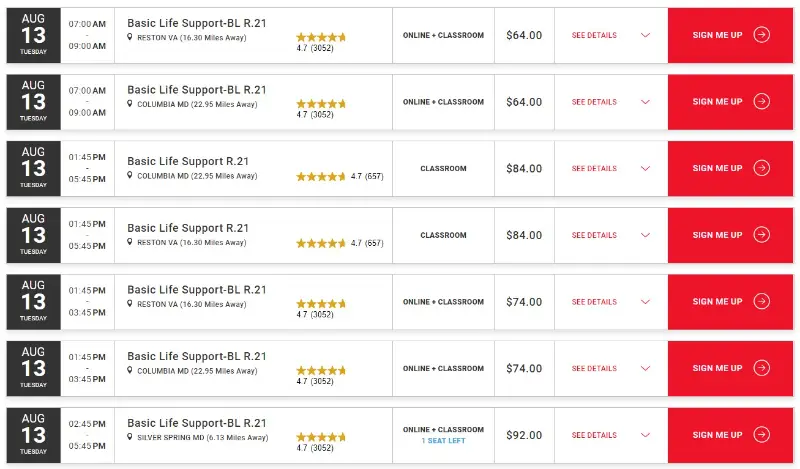
2. Advanced Cardiovascular Life Support (ACLS) Certification
- Provider: American Heart Association (AHA)
- Duration: Usually 2 years
- Format: Combination of online learning and in-person skills practice, including simulation scenarios.
- Cost: Approximately $150 to $250. This may include course materials and a certification card. Renewal is required every two years.
- Preparation: Review the AHA ACLS Provider Manual and practice rhythm interpretation through online simulators.
ACLS provides advanced training for managing cardiovascular emergencies. It includes recognizing and treating conditions such as cardiac arrest, acute coronary syndromes, and stroke.
Participants learn advanced techniques in airway management, medication administration, and rhythm interpretation to handle complex emergency scenarios.
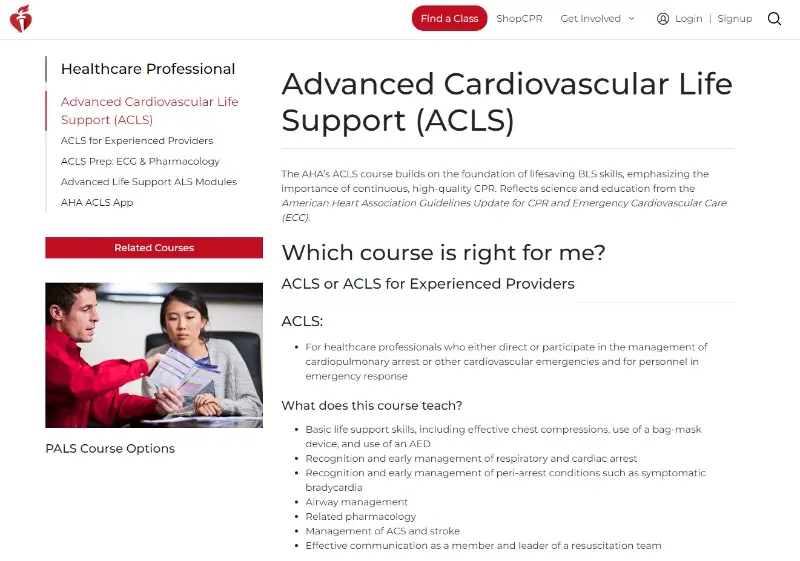
3. Pediatric Advanced Life Support (PALS) Certification
- Provider: American Heart Association (AHA)
- Duration: Typically 2 years
- Format: Online course paired with hands-on skills practice.
- Cost: Around $150 to $250, including certification and materials. Valid for two years.
- Preparation: Study the AHA PALS Provider Manual and complete online case scenario reviews.
PALS is designed for healthcare professionals who need expertise in pediatric emergency care.
This course covers the assessment and management of critically ill children, including techniques for handling respiratory distress, shock, and cardiac arrest in pediatric patients.
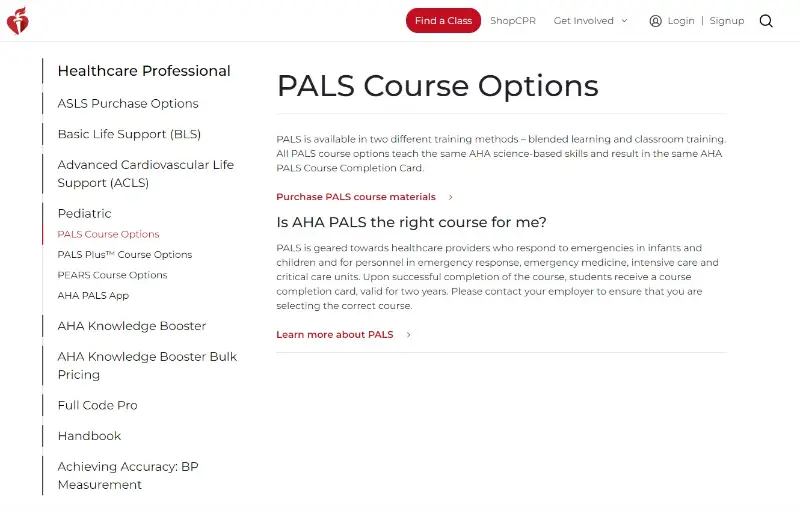
4. Certified Medication Aide (CMA)
- Provider: State boards of nursing or specific certifying organizations
- Duration: Varies by state; generally includes coursework and a written examination.
- Format: Classroom instruction and practical training, followed by a certification exam.
- Cost: Typically ranges from $100 to $300, depending on the state and provider. Renewal requirements vary by state.
- Preparation: Complete state-approved medication aide coursework and review pharmacology study guides.
The CMA program trains individuals to safely administer medications in various healthcare environments.
This role involves understanding pharmacology, medication interactions, and proper documentation, crucial for patient safety.
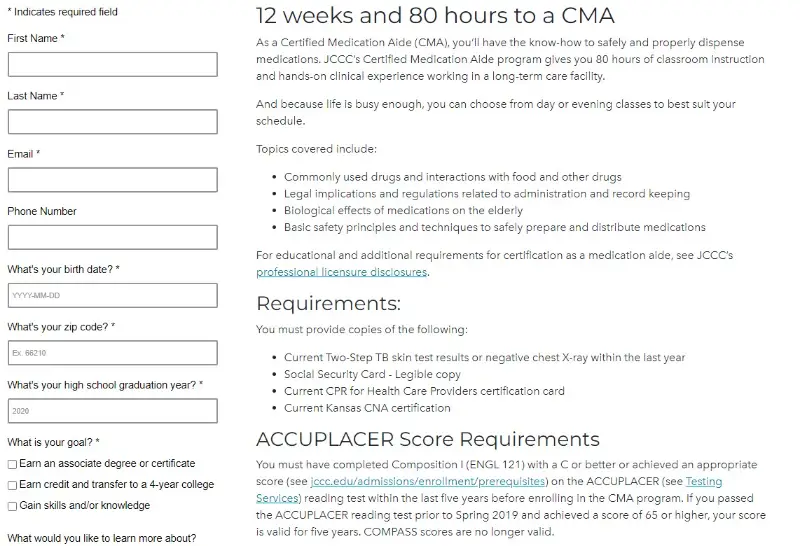
5. Wound Care Certification (WCC)
- Provider: National Alliance of Wound Care and Ostomy (NAWCO)
- Duration: Valid for 5 years
- Format: Requires passing an exam after meeting eligibility requirements which include specific clinical experience and education.
- Cost: Approximately $350 to $450 for the exam and application. Certification is valid for five years.
- Preparation: Study NAWCO wound care textbooks and complete practice exams offered by the provider.
WCC equips professionals with the skills to manage chronic and complex wounds effectively.
Training covers wound assessment, treatment techniques, and the use of advanced wound care products, addressing both acute and long-term care needs.
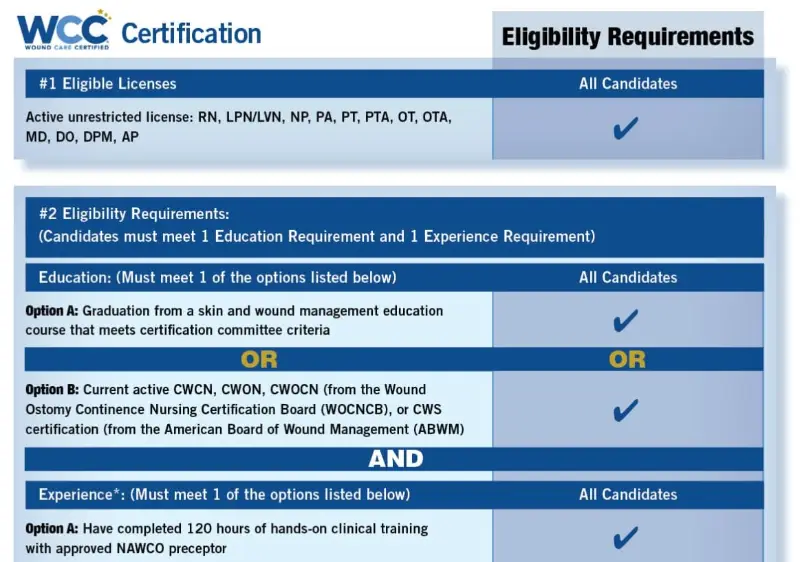
6. Certified Hospice and Palliative Nurse (CHPN)
- Provider: Hospice and Palliative Credentialing Center (HPCC)
- Duration: Valid for 5 years
- Format: Requires passing a certification exam after completing specific continuing education and clinical practice hours.
- Cost: Around $300 to $400 for the exam and application. Certification is valid for five years.
- Preparation: Review hospice and palliative care guidelines and complete practice questions from HPCC resources.
The CHPN credential is aimed at nurses specializing in end-of-life care, providing expertise in symptom management, pain relief, and emotional support for terminally ill patients and their families.
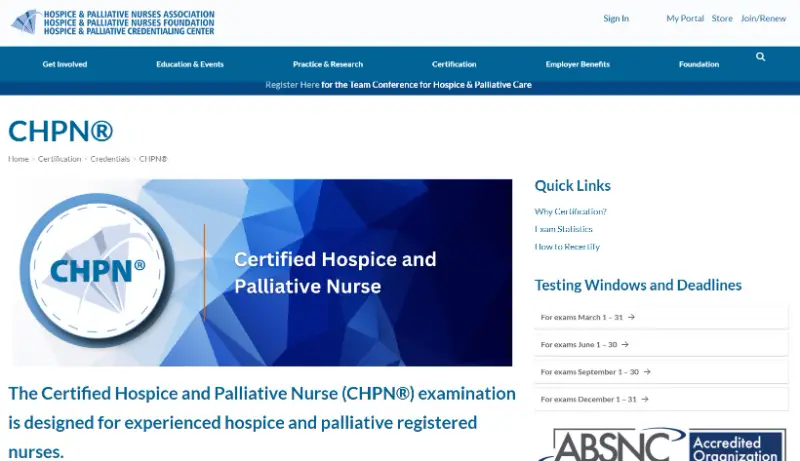
7. Diabetes Educator Certification (CDE)
- Provider: Certification Board for Diabetes Care and Education (CBDCE)
- Duration: Valid for 5 years
- Format: Requires documented clinical experience and passing an examination.
- Cost: Approximately $300 to $400 for the exam, with additional costs for study materials. Certification is valid for five years.
- Preparation: Study diabetes education textbooks and review sample exam questions from CBDCE.
The CDE designation is for professionals who educate patients about managing diabetes. This includes guidance on insulin therapy, dietary changes, and lifestyle modifications to achieve optimal glucose control.
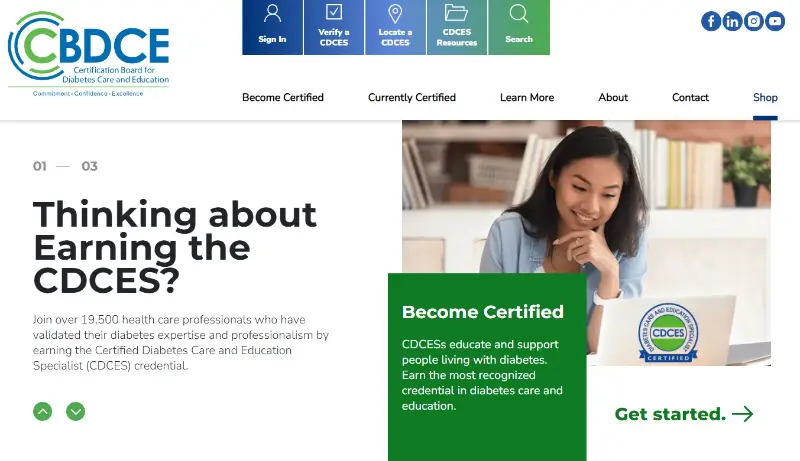
8. Certified Occupational Health Nurse (COHN)
- Provider: American Board for Occupational Health Nurses (ABOHN)
- Duration: Valid for 5 years
- Format: Certification requires passing an exam and fulfilling experience and education requirements.
- Cost: Around $300 to $400 for the exam and application. Certification is valid for five years.
- Preparation: Review ABOHN study materials and take practice tests covering occupational health topics.
COHN training prepares nurses to handle occupational health issues, including risk assessment, workplace wellness programs, and health promotion. This role focuses on preventing and managing workplace-related health concerns.
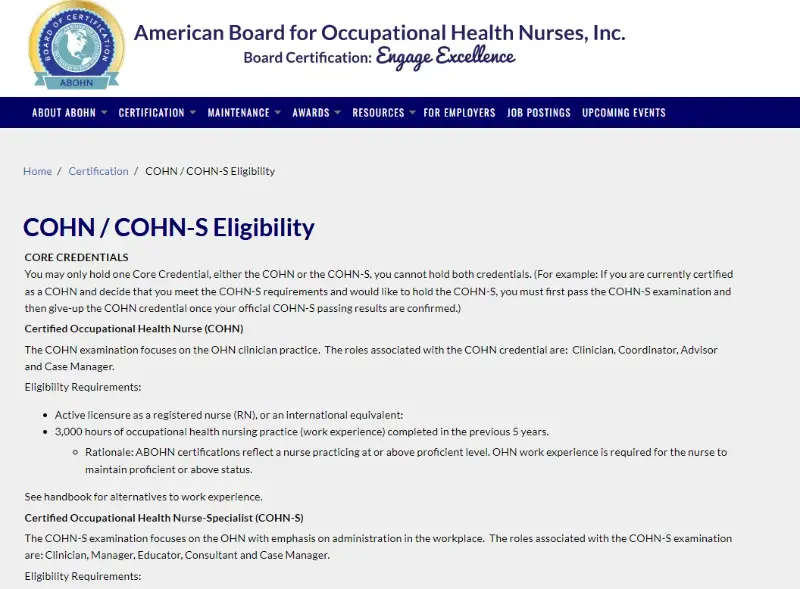
9. Certified Clinical Research Coordinator (CCRC)
- Provider: Association of Clinical Research Professionals (ACRP)
- Duration: Valid for 2 years
- Format: Requires passing an exam after meeting educational and experience criteria.
- Cost: Approximately $300 to $450 for the exam and application. Certification is valid for two years.
- Preparation: Study ACRP curriculum guides and complete practice questions online.
The CCRC designation is for professionals coordinating clinical trials and research studies. It covers managing research processes, including regulatory compliance, patient recruitment, and data management.
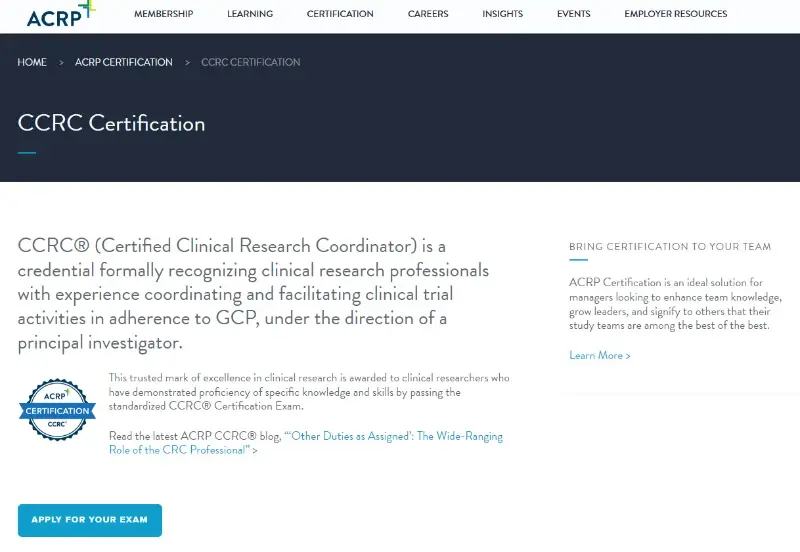
10. Certified Lactation Consultant (IBCLC)
- Provider: International Board of Lactation Consultant Examiners (IBLCE)
- Duration: Valid for 5 years
- Format: Requires a combination of education, clinical experience, and passing a comprehensive examination.
- Cost: Around $300 to $500 for the exam and application, with additional costs for study materials. Certification is valid for five years.
- Preparation: Complete lactation education programs and review IBLCE exam prep materials.
IBCLC training provides expertise in breastfeeding support, helping mothers with issues related to latch, milk supply, and overall breastfeeding management. This role is crucial for promoting healthy feeding practices and resolving breastfeeding challenges.
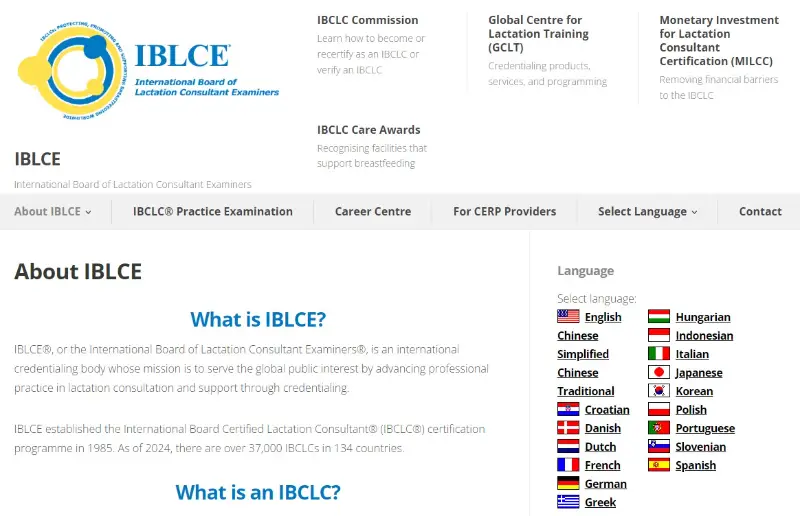
11. IV Therapy
- Provider: Various organizations including the National Association of Clinical Nurse Specialists (NACNS) or the Infusion Nurses Society (INS)
- Duration: Typically 1 to 2 days for the course, plus additional practice hours
- Format: In-person training with hands-on practice and a written exam
- Cost: Ranges from $150 to $300, depending on the provider and location. Renewal is generally required every two to four years.
- Preparation: Review IV therapy manuals and practice IV insertion techniques under supervision.
IV therapy training equips LPNs with the skills to administer intravenous medications and fluids safely. It includes techniques for setting up and managing IV lines, recognizing and addressing complications, and ensuring patient safety.
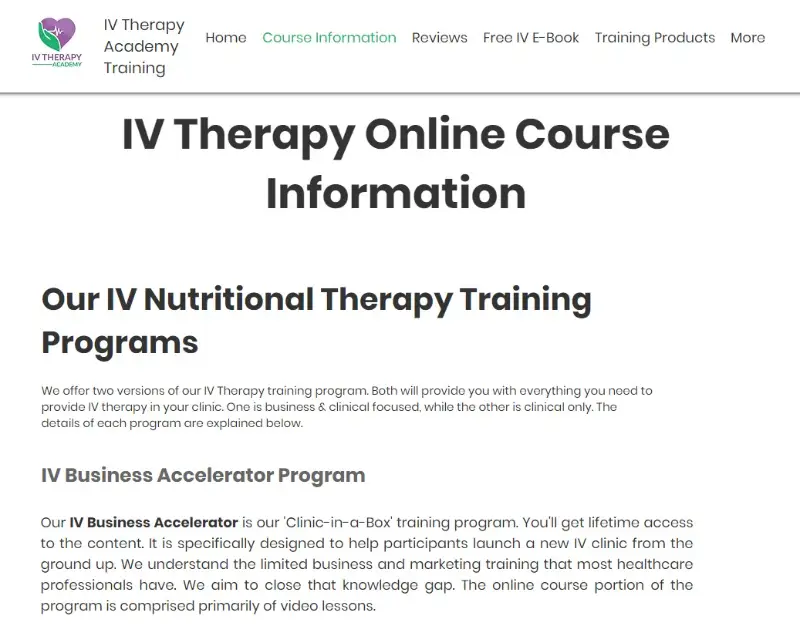
12. Long-term care certification for LPN
- Provider: National Association for Long Term Care Administrator Boards (NAB)
- Duration: Typically 2 to 4 days of training, plus exam preparation
- Format: In-person workshops or online courses with an exam
- Cost: Usually between $200 and $400. Renewal requirements vary by state.
- Preparation: Study NAB long-term care curriculum and complete practice exams.
This credential prepares LPNs to work in nursing homes, assisted living facilities, and similar settings. It includes training in patient care management, handling chronic conditions, and implementing comprehensive care plans for long-term residents.
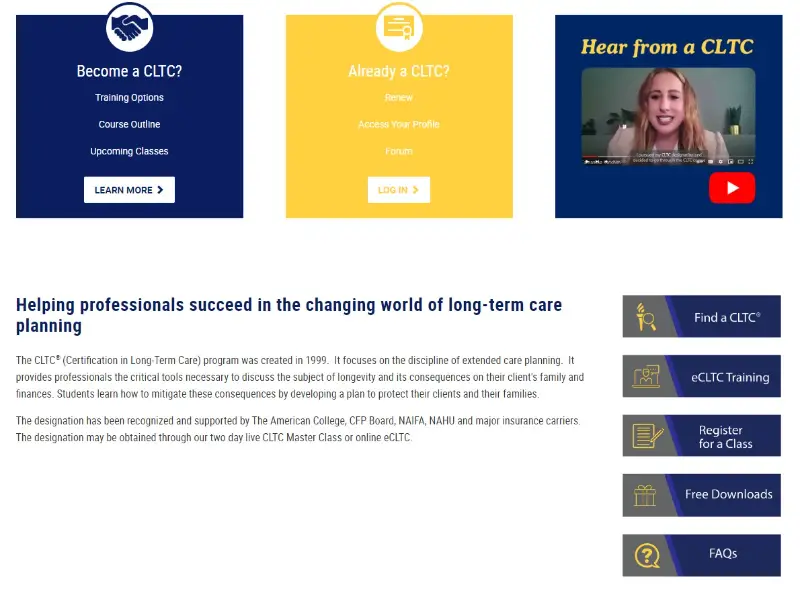
13. LPN pharmacology certification
- Provider: American Association of Nurse Practitioners (AANP)
- Duration: Typically 1 to 3 days or spread out over a few weeks
- Format: Online courses or in-person classes with a final exam
- Cost: Ranges from $100 to $300. Continuing education is recommended for maintaining current knowledge.
- Preparation: Study pharmacology textbooks and complete quizzes on medication classifications.
This certification focuses on understanding drug properties, classifications, dosages, side effects, and interactions. It ensures that LPNs are proficient in safely administering medications and providing patient education regarding prescriptions.
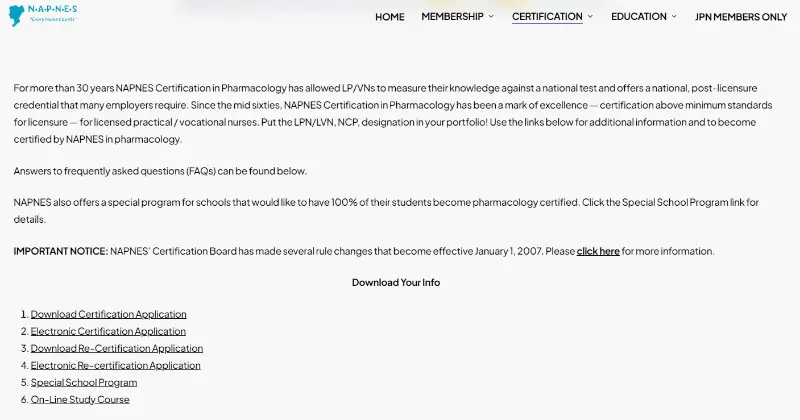
14. Transplant coordinator
- Provider: American Board for Transplant Certification (ABTC)
- Duration: Varies, often requiring several months of preparation and clinical experience
- Format: Combination of coursework and clinical experience, with a certification exam
- Cost: Typically $300 to $500. Renewal is required every five years.
- Preparation: Review transplant nursing guidelines and complete ABTC study materials.
This certification prepares LPNs for the role of managing and coordinating care for organ transplant patients. It includes comprehensive training on the process, pre- and post-transplant care, and collaboration with healthcare teams to ensure optimal outcomes.
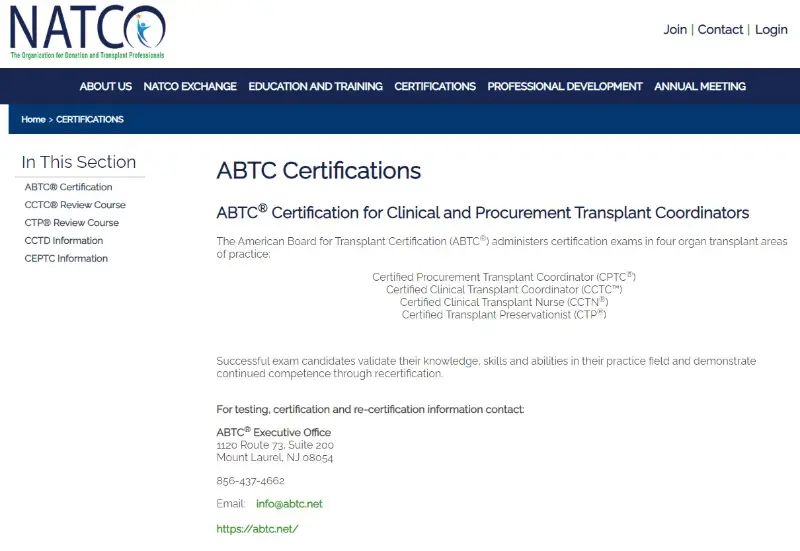
15. Developmental disabilities
- Provider: National Association for the Dually Diagnosed (NADD)
- Duration: Typically 1 to 2 days of training, plus additional coursework or field experience
- Format: In-person workshops or online courses, often with an exam
- Cost: Ranges from $100 to $250. Renewal is required every two to four years.
- Preparation: Study NADD training materials and participate in behavior management workshops.
This certification prepares LPNs to care for individuals with developmental and intellectual disabilities. It includes training on behavior management, communication strategies, and addressing specific healthcare needs related to developmental conditions.
This specialized knowledge supports improved care and quality of life for affected individuals.
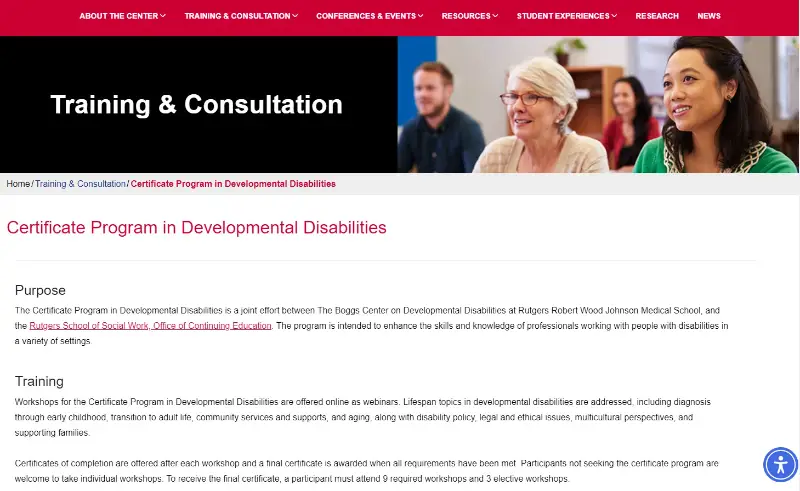
16. Health Coaching Certification For Nurses & Clinicians
- Provider: National Society of Health Coaches (NSHC)
- Duration: Depending on the weekly commitment, you might expect to invest anywhere from 150 to 300 hours total to prepare for the certification exam
- Format: Some organizations may require you to take the exam in person at a designated testing center
- Cost: $875. Renewal is required every two to three years.
- Preparation: Complete NSHC coursework and review ethical guidelines in clinical coaching.
This LPN certificate addresses the ethical considerations of coaching as distinct from medical practice. Nurses and clinicians learn how to set boundaries between coaching and clinical care, ensuring that they provide support within their scope and refer patients when medical intervention is needed.
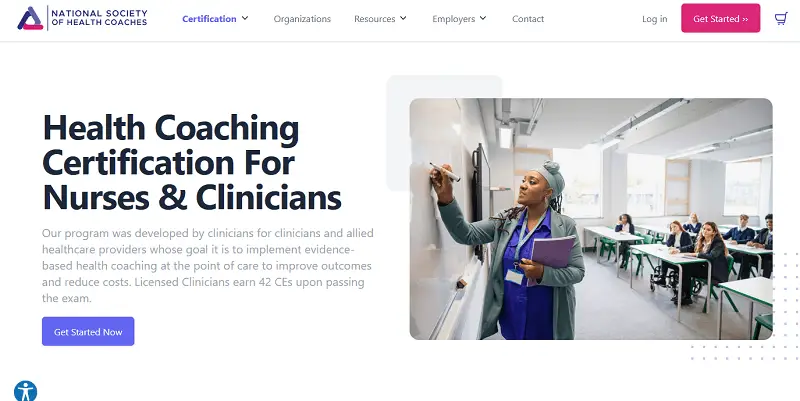
How to prepare for certification exams?
Start by clearly identifying your career goals and thoroughly reviewing the exam content provided by the certifying body. This outline will help you understand the topics and format of the test, guiding your efforts.
Next, create a plan that includes specific times for studying and reviewing. Establish a timeline that allows you to cover all necessary information before the exam date. Break down the topics into manageable sections and allocate time to each, ensuring a comprehensive review.
Gather study materials from reliable sources. Utilize textbooks, study guides, and practice exams recommended by the certifying organization. If available, consider enrolling in review courses, which offer focused sessions and practice questions.
Study actively:
- Use flashcards. Create flashcards for key concepts, terms, and procedures.
- Form study groups. Join or form groups with peers to discuss topics and test each other’s knowledge.
- Track progress. Keep a study journal to track what you’ve covered and what’s left to study.
Maintaining your well-being is also important. Ensure you take regular breaks to avoid burnout, and manage stress through healthy habits like adequate sleep and proper nutrition.
International LPN certifications
Some countries allow for transfer of credentials through reciprocity or mutual recognition agreements, meaning you could potentially practice in another place without needing to start from scratch.
Here’s a table outlining various international trainings for licensed practical nurses across different locations:
| Country | Certification | Governing Body | Description |
|---|---|---|---|
| Canada | CPNRE (Canadian Practical Nurse Registration Exam). | Canadian Council for Practical Nurse Regulators | Required exam for practical nurses to gain licensure across Canadian provinces. |
| United Kingdom | NMC. | Nursing and Midwifery Council | Registration after completing training and meeting English proficiency standards. |
| Australia | AHPRA. | Australian Health Practitioner Regulation Agency. | Registration process after completing an accredited program. |
| New Zealand | NCNZ. | Nursing Council of New Zealand. | Requires meeting education and language proficiency standards for licensure. |
| Ireland | NMBI. | Nursing and Midwifery Board of Ireland. | Process includes completing a recognized program and registration with NMBI. |
| South Africa | SANC. | South African Nursing Council. | Licensure involves passing exams and meeting training requirements. |
| Singapore | SNB. | Singapore Nursing Board. | Registration after completing an accredited course and meeting other criteria. |
| India | NCI. | State Nursing Council under NCI | Registration involves completing a diploma program and passing necessary exams. |
| United Arab Emirates (UAE) | Practical Nurse Licensing | Ministry of Health and Prevention. | Requires passing exams and completing training through MOHAP. |
| Germany | Gesundheits- und Krankenpflegegesetz (Nursing Law) | German Nurses Association. | Involves passing exams and registration with local authorities. |
Maintaining your certification
LPN certifications typically need to be renewed every 2 to 4 years. Be aware of the renewal dates and requirements for each training.
It's essential to complete the required continuing education units (CEUs). Find accredited programs through professional organizations, online platforms, or local nursing schools.
Keep careful records of the CEUs you complete, as some certifications may require proof of your continuing education activities.
When it’s time to renew your certifications, prepare all necessary documentation. Ensure you submit your renewal application before the expiration date to avoid any lapse in certification.
Certifications for LPNs: FAQ
- What is the process for obtaining a certification?
- Generally, LPNs must complete specific coursework or training programs, pass an examination, and sometimes fulfill continuing education requirements to obtain and maintain certifications.
- Are there free certifications available for LPNs?
- Yes, there are some free or low-cost certification options. These might include credentials offered through state or local health departments or non-profit organizations. Free trainings may also be available through employer-sponsored programs or professional associations that offer temporary or promotional certifications at no cost.
- Are there scholarships or financial assistance available for these programs?
- Some professional organizations, employers, and educational institutions offer scholarships or financial assistance for certification programs. It’s worth exploring these options.
- What is the difference between a certification and a license?
- A certification is a credential indicating specialized knowledge or skills in a particular area. A license is a legal authorization to practice nursing. Both are important but serve different purposes.
- Can an LPN certification be obtained online?
- Many certification programs offer online coursework or exam options, though some may require in-person components or clinical experience.
Conclusion
In conclusion, pursuing specialty certifications for LPNs is more than just a career boost—it's a commitment to excellence in patient care. These credentials not only expand your knowledge but also open doors to new opportunities, higher salaries, and specialized roles.
As the healthcare industry continues to evolve, staying certified ensures that you remain at the forefront, ready to meet the challenges and opportunities that lie ahead.
Create your professional Resume in 10 minutes for FREE
Build My Resume






